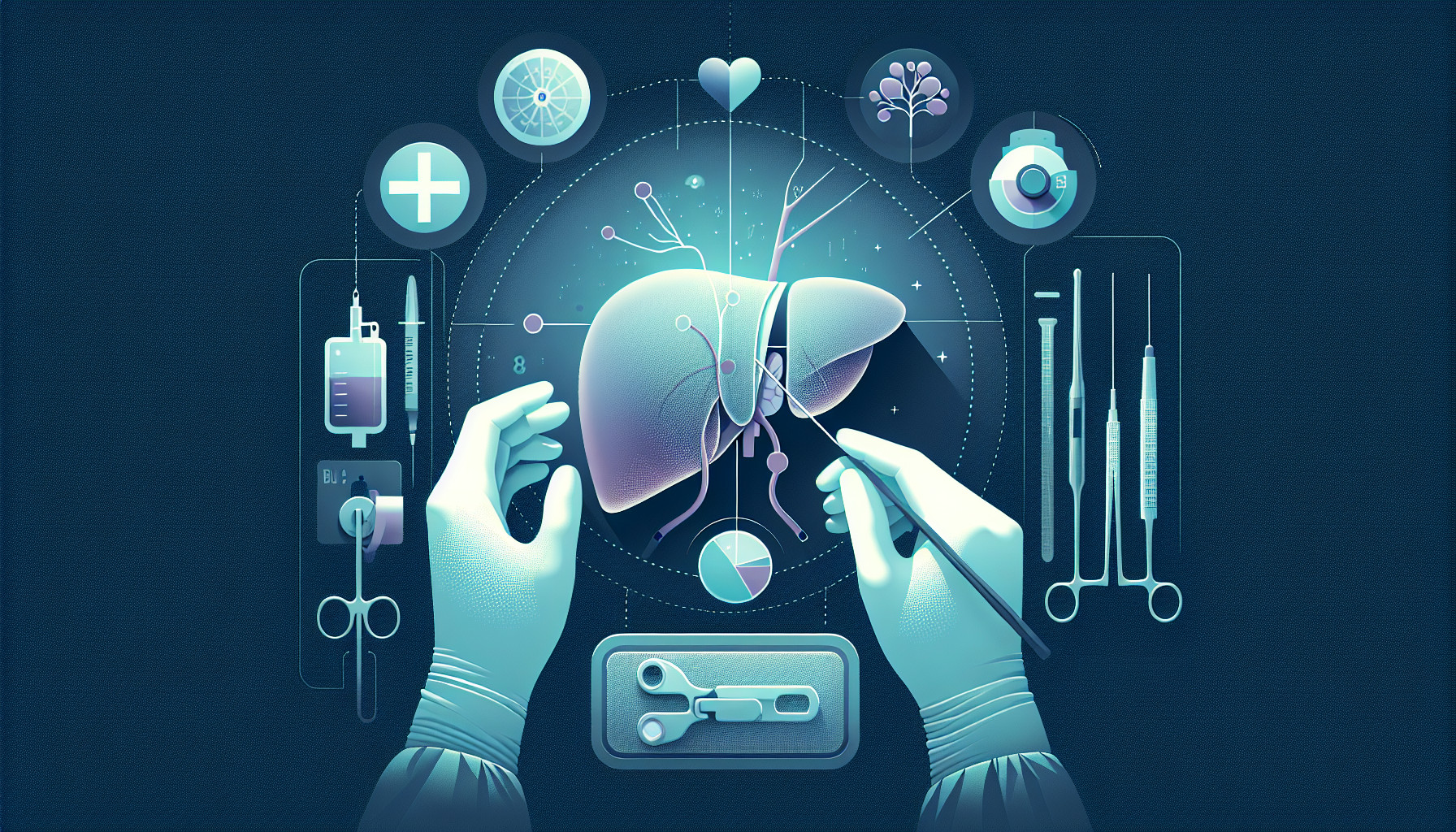Our Summary
This research paper discusses the diagnosis and treatment of sudden liver failure in children, a condition that requires immediate attention to increase survival rates. The Indian Society of Pediatric Gastroenterology, Hepatology, and Nutrition gathered national and international experts to discuss and review important points related to this condition. They discussed the definition, the step-by-step process for identifying the cause according to the child’s age, non-invasive methods for diagnosing and managing brain swelling, how to predict the prognosis, the criteria for considering a liver transplant and temporary treatments.
These experts created statements and recommendations based on evidence evaluated using a modified system called the Grading of Recommendations Assessment, Development and Evaluation (GRADE). These recommendations were thoroughly reviewed and finalized. The researchers hope that these recommendations will be used by pediatric and adult medical professionals to improve the outcomes of children with sudden liver failure.
FAQs
- What were the main topics discussed by the experts at the Indian Society of Pediatric Gastroenterology, Hepatology, and Nutrition regarding sudden liver failure in children?
- What is the Grading of Recommendations Assessment, Development and Evaluation (GRADE) system and how was it used in this research?
- How are the recommendations from this research expected to impact the treatment and prognosis of children with sudden liver failure?
Doctor’s Tip
One important tip a doctor might give a patient about pediatric liver transplant is to ensure that the child receives regular follow-up care after the transplant. This includes attending all scheduled appointments, taking medications as prescribed, and following a healthy lifestyle to support the new liver. By closely monitoring the child’s progress and addressing any issues that arise promptly, the doctor can help maximize the success of the transplant.
Suitable For
Patients who are typically recommended for pediatric liver transplant include:
Children with acute liver failure (ALF) who do not respond to medical treatment and are at risk of dying without a transplant.
Children with chronic liver disease who are at risk of developing complications such as liver cirrhosis, hepatocellular carcinoma, or liver failure.
Children with metabolic liver diseases such as Wilson’s disease, alpha-1 antitrypsin deficiency, or glycogen storage diseases that are not responsive to medical management.
Children with genetic liver diseases such as biliary atresia, Alagille syndrome, or progressive familial intrahepatic cholestasis that are causing liver failure.
Children with autoimmune liver diseases such as autoimmune hepatitis or primary sclerosing cholangitis that are not responding to medical therapy.
Children with liver tumors or other liver conditions that cannot be treated effectively with other interventions.
Overall, pediatric liver transplant is recommended for children with severe liver disease that is not responsive to medical treatment and is causing significant morbidity or mortality. The decision to recommend a liver transplant is made on a case-by-case basis by a multidisciplinary team of healthcare professionals, including pediatric hepatologists, transplant surgeons, transplant coordinators, and other specialists.
Timeline
Before Pediatric Liver Transplant:
- Child presents with symptoms of sudden liver failure, such as jaundice, abdominal pain, fatigue, and confusion.
- Child undergoes diagnostic tests, including blood tests, imaging studies, and liver biopsy, to determine the cause of liver failure.
- Child may be treated with medications to manage symptoms and prevent complications, such as brain swelling.
- Child may be evaluated for a liver transplant if conservative treatments are not effective or if the liver failure is severe and irreversible.
After Pediatric Liver Transplant:
- Child undergoes a thorough evaluation to determine eligibility for a liver transplant, including blood tests, imaging studies, and psychological assessment.
- Child is placed on the transplant waiting list and waits for a suitable donor liver to become available.
- Child undergoes the liver transplant surgery, which involves removing the diseased liver and replacing it with a healthy donor liver.
- Child receives post-operative care, including monitoring for complications, taking immunosuppressant medications to prevent rejection of the new liver, and participating in rehabilitation and follow-up appointments.
- Child may experience complications after the transplant, such as infection, rejection of the new liver, or side effects from immunosuppressant medications.
- Child undergoes long-term follow-up care to monitor the function of the new liver, manage any complications, and ensure overall health and well-being.
What to Ask Your Doctor
- What are the potential causes of sudden liver failure in children?
- How is sudden liver failure diagnosed in children?
- What are the treatment options for sudden liver failure in children?
- How can brain swelling be managed in children with sudden liver failure?
- What is the prognosis for children with sudden liver failure?
- What criteria are used to determine if a child is a candidate for a liver transplant?
- What temporary treatments may be considered for children with sudden liver failure?
- What are the potential risks and benefits of a liver transplant for a child with sudden liver failure?
- What is the long-term outlook for children who undergo a liver transplant for sudden liver failure?
- Are there any lifestyle changes or precautions that should be taken following a liver transplant in a child with sudden liver failure?
Reference
Authors: Lal BB, Khanna R, Sood V, Alam S, Nagral A, Ravindranath A, Kumar A, Deep A, Gopan A, Srivastava A, Maria A, Pawaria A, Bavdekar A, Sindwani G, Panda K, Kumar K, Sathiyasekaran M, Dhaliwal M, Samyn M, Peethambaran M, Sarma MS, Desai MS, Mohan N, Dheivamani N, Upadhyay P, Kale P, Maiwall R, Malik R, Koul RL, Pandey S, Ramakrishna SH, Yachha SK, Lal S, Shankar S, Agarwal S, Deswal S, Malhotra S, Borkar V, Gautam V, Sivaramakrishnan VM, Dhawan A, Rela M, Sarin SK. Journal: Hepatol Int. 2024 Oct;18(5):1343-1381. doi: 10.1007/s12072-024-10720-3. Epub 2024 Aug 30. PMID: 39212863
